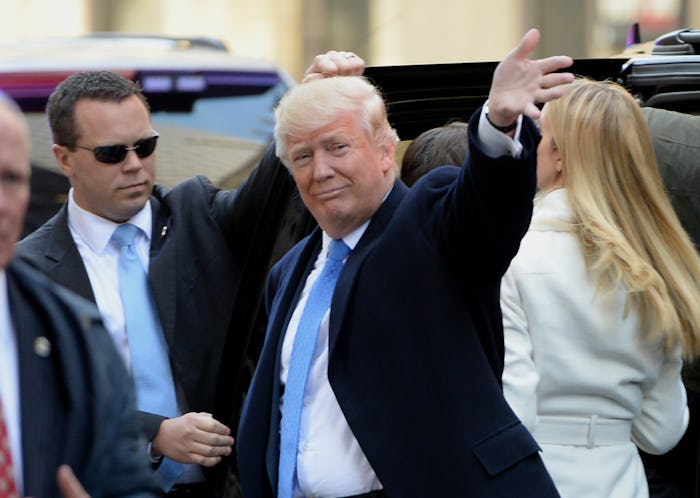News

Is There A Way To Stop Trump From Becoming President?
With the vital swing states of Florida and Ohio appearing to go red and states that are typically solid blue looking quite purple, the conversation is beginning to shift in the direction of what will happen when Donald Trump becomes president. Or, depending on who you are talking to: Is there a way to stop Trump from becoming president?
In the months leading up to the election, polls seemed to suggest Hillary Clinton would win the presidency, even as she remained entangled in her email controversy. Statistician Nate Silver, who called with past two presidential elections nearly perfectly, said on his blog on the morning of Election Day, " Clinton is a 71 percent favorite to win the election according to our polls-only model and a 72 percent favorite according to our polls-plus model."
Then the outcome of votes from the eastern side of the United States began to roll in — and, suddenly, the tone shifted in favor of Trump winning the election. As of 10:30 p.m. EST, The New York Times gave Trump an 80 percent chance of winning the election, even though voting stations on the western side of the country remained open.
That cued chaos for both Clinton supporters and members of the #NeverTrump movement across the United States.
If the night continues to progress in the same way it began, it seems Trump will earn the 270 votes from the Electoral College necessary to win the election and be declared the next president of the United States. But, does that mean it will actually come to be?
That was apparently on the mind of someone way back in March when that person posted the question on Quora, asking, "If Donald Trump wins the election, would Congress, the Courts, the President, or the citizens have any options to keep him from becoming president?" At the time, Gene Spafford, a professor from Purdue University, answered as such:
If some of the electors, at the state meetings, were to be "faithless" and cast their votes for other people, that could change the numbers... Next, Congress meeting in joint session (in the first week in January) would tally and accept the electoral college votes. If a state's votes were challenged by the appropriate mechanism (a petition by one member of the House and one of the Senate), the two chambers would immediately meet separately and vote on the challenge. It is possible that they would ratify the challenge and nullify all the electoral votes of that state (they can't change them).
If either of these things happened and the number of accepted electoral votes for Mr. Trump were to drop below the 270 mark, it would be up to the House of Representatives to elect a new President, with each state getting 1 vote. The Senate would elect the VP.
If those theoretical efforts don't stop Trump, he can be removed from the presidency. As Spafford said, "After the swearing-in, if the President tries to subvert the Constitution or commit clearly illegal acts, impeachment is a distinct possibility."
In other words, this "election" may actually continue long after tonight.